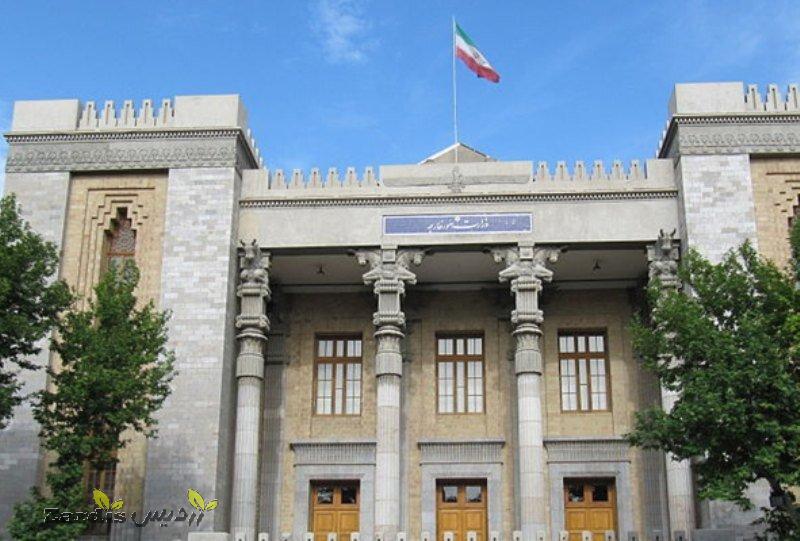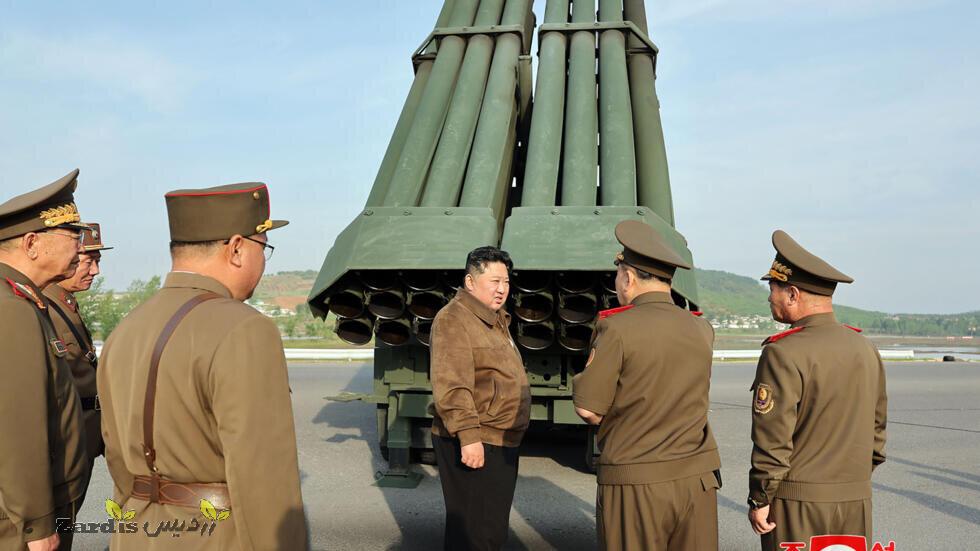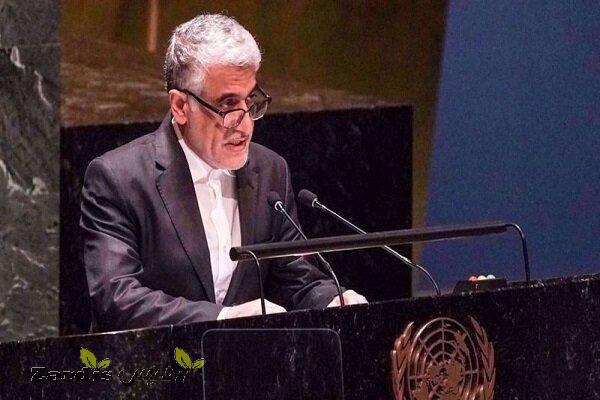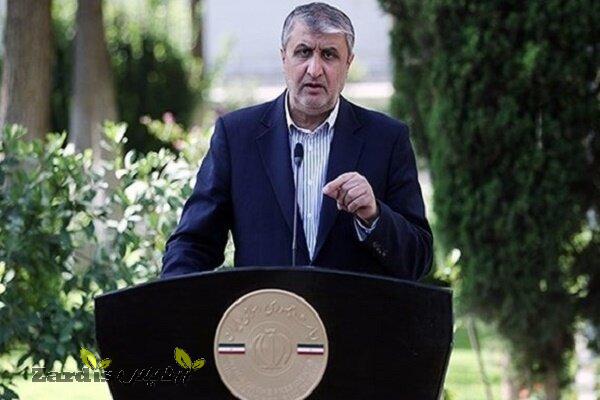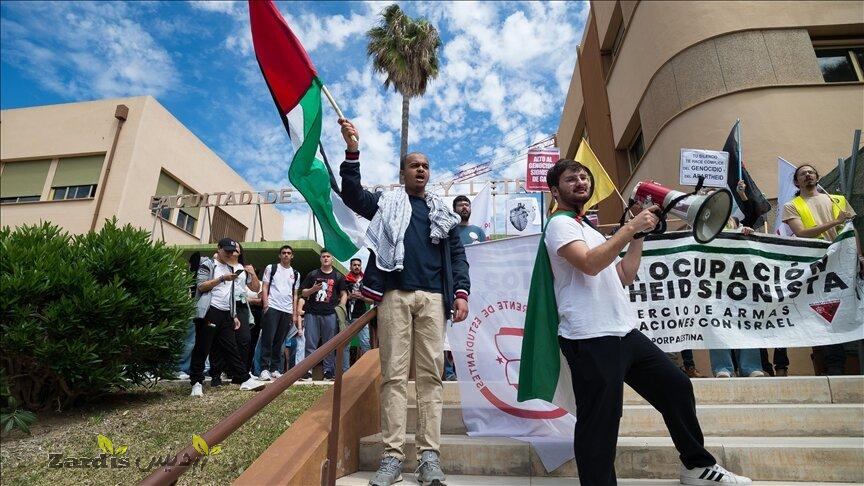TEHRAN – Iran’s Foreign Ministry spokesman Saeed Khatibzadeh has strongly rejected “interventionist and irresponsible” remarks by officials of the Arab League and the (Persian) Gulf Cooperation Council.
In a statement on Friday, Khatibzadeh highlighted the “destructive role of a handful of countries”, saying, “These imprudent and irresponsible comments are part of their anti-Iran remarks.”
The statement came after high-level Arab officials leveled accusations against Iran following Tehran’s decision to raise the uranium enrichment level to 60%. The Arab League expressed “extreme concern” over Iran’s decision to enrich uranium up to 60% purity, calling it a “dangerous development.”
Secretary-General of the Arab League Ahmad Abul Gheit issued a statement accusing Iran of taking a step toward developing a nuclear weapon.
In addition, an official source at the pan-Arab organization also accused Iran of violating its obligations under the 2015 nuclear deal, officially known as the Joint Comprehensive Plan of Action (JCPOA).
“This regrettable development comes as part of Iran’s continued violations of its obligations under the nuclear agreement, which is currently at the center of intense negotiations to revive it,” the official said, underlining the need to reach an agreement that will address the Arab countries’ concerns related to Iran’s regional activities.
On Wednesday, the GCC secretary general echoed similar concerns. In letters to the negotiating parties in Vienna – China, Russia, France, the U.S., UK, and Germany- Nayef Al-Hajraf said the Iran nuclear deal talks in Vienna must address the concerns and interests of the Persian Gulf countries to boost security and stability in the region.
Al-Hajraf claimed that the GCC is a major contributor to strengthening the security and stability of the region, and that the negotiations currently underway in Vienna should not be limited to the Iranian nuclear program, but rather should include Iran’s alleged “destabilizing” behavior, and ballistic missiles, according to Arab News.
The GCC chief also expressed concerns over Iran’s decision to enrich uranium to 60%, warning that Iran’s announcement of uranium enrichment is a dangerous and worrying indicator for regional and international security.
Al-Hajraf also called on the “international community to shoulder its responsibilities toward this dangerous and threatening development to regional and global peace and security.”
“These remarks aimed to derail nuclear deal talks”
Iran hit back at these remarks. Khatibzadeh said these statements are meant to derail nuclear talks in Vienna.
“These statements are not aimed at calling for cooperation; rather, they seek to disrupt the trend of technical talks in Vienna,” he said.
“The secretaries general of these institutions should know that Iran is a member of the International Atomic Energy Agency (IAEA) and all of Iran’s nuclear activities are monitored by the safeguards programs of this agency,” said the spokesman.
“Naturally, the development of this program (Iran’s nuclear program) will continue in line with the Islamic Republic of Iran’s legitimate rights and national interests aimed at meeting peaceful needs,” he added.
“These entities had better avoid turning a blind eye to the existing realities and, instead, focus their concerns on parties violating the 2015 nuclear deal and UN Security Council Resolution 2231,” he said.
Khatibzadeh urged chiefs of these institutions to turn their attention to the military and illegal nuclear activities of the Israeli regime and pay due regard to the dangers posed by the hundreds of nuclear warheads of this regime and its refusal to join the Nuclear Non-Proliferation Treaty (NPT) as the biggest threat to regional peace, stability and security rather than getting on board with Israel when it comes to constantly leveling accusations against Iran.
Diplomats from Iran and the P4+1 are in the Austrian capital of Vienna to discuss ways to revitalize the JCPOA. Over the past few weeks, they held several rounds of intensive talks aimed at bringing Iran and the U.S. back to full compliance with the nuclear deal.
Seyed Abbas Araghchi, Iran’s deputy foreign minister, who heads Iran’s negotiating team in Vienna, held numerous meetings with diplomats from the P4+1. On Friday, the heads of the Russian and Chinese negotiating teams visited the residence of Iran’s chief negotiator and deputy foreign minister in Vienna to hold trilateral talks with him, according to a statement issued by the Iranian Foreign Ministry.
The Friday meeting was held as part of ongoing consultations between Iran and the P4+1 negotiators in the Austrian capital.
Technical talks and discussions between the JCPOA parties on the removal of sanctions and nuclear issues are still underway at different levels.
The Iranian Foreign Ministry also rejected reports claiming that the Vienna talks have been stopped.
“It should be noted certain reports that the negotiating teams have decided to stop the talks and return to their capitals are not true, and the talks are still going on,” the statement said.
Iran has urged the U.S. to lift all the sanctions imposed under Donald Trump, while the U.S. has shown little interest in removing all of these sanctions.
Zardis news | The latest news of Iran and the world
All rights reserved for "Zardis news"It is protected and any copying without mentioning the source is prohibited.
Pursuant to Article 12 of Chapter 3 of the Cybercrime Law, copying the format and content will be prosecuted.
